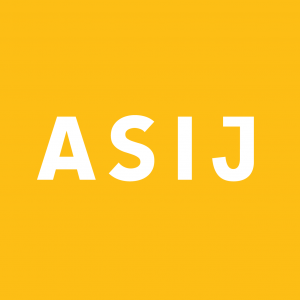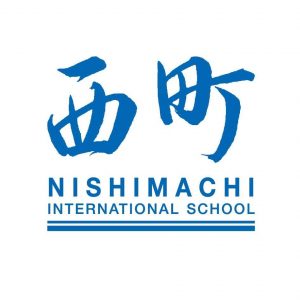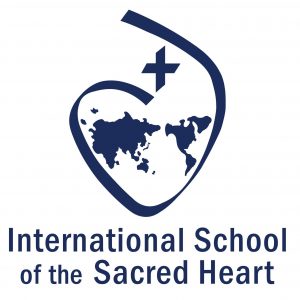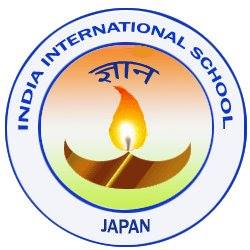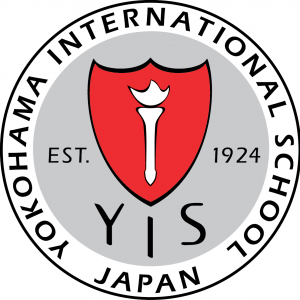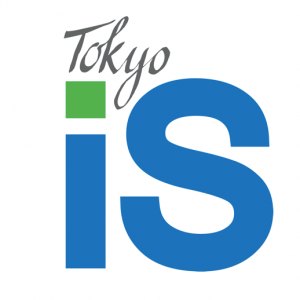Back to blog
International Schools in Tokyo, Yokohama – Directory
Are you looking for information about International Schools in Tokyo and Yokohama? Many of our students are looking for a quality English education for their children in Tokyo. In this blog we will share information related to international schools in Tokyo.
All of the information contained here are gathered from their official websites.
1. Saint Maur International School
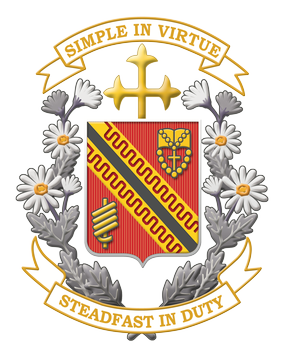
Intro
Since 1872, Saint Maur has functioned as a school community where moral values govern all that we do to help students, parents and staff reach their full potential. We support each member of our school community, and students receive unparalleled care in a safe, supportive, and diverse learning environment.
One of the most valuable benefits of a Saint Maur education is preparation for the future. Students are provided with a balanced, quality academic and extracurricular program which to date has resulted in a 100% matriculation rate into four-year universities and colleges. (Adopted form the school’s homepage)
Academic
Montessori (Pre-School and Kindgergarten):
Fundamental to our Montessori School is the multi-aged classroom. Each classroom includes children aged 2 ½ – 5+. The children may work either individually or in small groups, learning from and sharing with one another. It was Dr. Montessori’s belief that the children of mixed-age groups mutually benefit from working together, as there is a love, respect and admiration between ages.
Along with the necessary skills for independence, the children are introduced – in a sequential and concrete way – to mathematics, language, phonetics, social studies, science, music, and art. (Adopted form the school’s homepage)
Elementary School:
In Elementary School students spend the majority of the day with their homeroom teacher. In homeroom classes students and teachers work collaboratively to create a positive classroom environment, develop their interpersonal skills and practice their teamwork and problem solving skills.
Our Elementary curricular program includes Language Arts, Structured Word Inquiry, Mathematics, Science, Social Studies, Japanese, English as an Additional Language, Religious Studies, PSHE (Personal, Social, & Health Education), Technology, Art, General, Vocal & Instrumental Music, Grade 5 Band, Physical Education, Maker Space, and Library Skills.
Each grade will also take part in some exciting field trips throughout the year which are valuable learning experiences linked into our IPC units of study. Some of the most recent trips include visits to Apple, the Mitsubishi Museum, Morinaga Chocolate Factory, & the Ueno Science Museum.
A wide range of extracurricular/club activities are offered at all levels of the Elementary School as a means of achieving our whole school philosophy of producing well-rounded students. Clubs offered focus on athletic activities, dance, drama, Lego, crafts, arts, cooking, woodworking, robotics, and martial arts, to name a few. The costs of participating in the majority of activities are covered within the school fee structure; however, some activities/clubs are offered at additional costs to cover transportation, equipment, materials, etc. (Adopted form the school’s homepage)
Middle School:
Middle School students follow an established curriculum of English, Natural Science, Mathematics, Social Studies (Geography in Grade 6 & 7 and World History in Grade 8), Technology (Computer Applications, Computer Science & Robotics), Fine Arts (Studio Art, Music, and Drama), World Language (Japanese + French or Spanish), Religious Studies, Physical Education and Personal, Social and Health Education (PSHE). Students in Grades 6 & 7 also take an Organizational Skills class designed to give them the tools to be intrinsically responsible and successful students.
An elective course among Computer Science, Studio Art, and Drama is selected in Grade 7 to study in Grade 8. At the end of Grade 8, two elective option courses are selected for continued study in Grade 9. The first course is among IGCSE Computer Science, IGCSE Visual Arts, IGCSE Drama and IGCSE Music. The second course is the World Language course among either Japanese, IGCSE French B or IGCSE Spanish B.
Middle School students meet on a daily basis with their homeroom teachers for morning prayer and any announcements for the day. Each homeroom has two assigned teachers to care for students and monitor their overall school experience. Additionally, students meet with their homeroom for a whole period three (in Grade 6) or two (in Grade 7 & 8) times a cycle; time devoted to meeting and caring for the social-emotional developmental needs of the students. In addition to the pastoral support students receive through their Homeroom experience, in Grades 6 and 7, students are assigned a Middle School staff member as their advocate. As a school community we strongly believe that students need adult role models to be successful in school and in life outside of school, someone to look out for them and encourage them through the challenging times of adolescence. Students meet with their assigned advocate once each cycle during lunch recess time for the purpose of making such connections.
Twice a year, all Middle School students participate in educational excursions that extend the curriculum beyond school and offer experiences that connect and relate to their classroom curriculum. Designed to give real-life cross-curricular connections, our educational excursions give students and their teachers the opportunity to bond and experience culture, the environment, physical education, technology, mathematics, and literacy beyond the classroom environment. At each Middle School Grade Level, the students also participate in an extended educational excursion that usually last 2 nights and 3 days. (Adopted form the school’s homepage)
High School:
Students in Grades 9 and 10 take courses that prepare them for the exams in many of the subjects provided by the International General Certificate of Secondary Education (IGCSE). This is operated by the University of Cambridge and is the most widespread international curriculum for Grades 9 and 10 in the world. Students gain valuable and rigorous learning experiences to prepare themselves to enter the International Baccalaureate (IB) Diploma program in Grade 11.
In Grade 11, all students enter the International Baccalaureate (IB) program. As all courses offered are IB courses (with one exception), all students are considered IB Course Candidates. Students who have the appropriate academic qualifications to fulfill the requirements of the Full Diploma program have the choice to register for it. Students can choose six subjects from the 22 offered at Saint Maur and study them in small classes with personal teacher attention. After completing IB exams, students can use their scores for advanced placement and college credit in university.
Each Saint Maur High School student is a member of a homeroom, with between 24 and 40 classmates and two homeroom teachers and one or two advisory teachers. The homeroom teachers and advisors provide pastoral care and act as advocates and intermediaries for their students. The low student-teacher ratio at Saint Maur (8:1) means that students can always find a teacher to ask for advice on academic or personal matters. All subject teachers are available during lunch time and after classes, while the After-School Academic Support program, available every day, enables students to receive additional help when they need it (for no extra fee.)
All Saint Maur High School students go on excursions, ranging from day trips to locations in the Tōkyō-Yokohama area, to overnight trips further away. The main purpose of all of these excursions is educational, and most are directly linked to the curriculum that students are studying so that teachers can expand their experiences outside the classroom. Grade 12 students take a three-day Senior Trip within Japan before their graduation. (Adopted form the school’s homepage)
Facilities
Conducive to good learning and creating life-long learners, our campus has modern and well-maintained facilities, which apart from classrooms; include recreation halls, robotic and computer labs, a cafeteria, a library and several outdoor play areas. In addition to dedicated Fine Arts and Science Centers, the school owns an outdoor sports complex located only a three-minute walk away from its main campus.
A brand new, state-of-the-art building called Cougar Café, Activity & Sports Center was opened in April 2021 and hosts a cafeteria, a competitive indoor sports area with a spectator area, as well as two additional activity rooms. (Adpoted form the shcool’s homepage)
Admission Process
- Online Pre-Application Inquiry Form (No Charge)
- Application through Admission link sent if Eligible (Application Fee is collected)
- Grade 4-11 Evaluations (English & Mathematics, Remote OK)
- Grade 1-3 Evaluations (For those not in Japan, a “tentative” acceptance will be issued)
- Acceptance (Full or Probationary / Conditional, Enrollment Registration Fee is collected)
- Waiting Pool in case of Full Enrollment (Guidelines)
School Criteria
- Montessori Pre-School: Children who are toilet trained, and do not require the use of ‘pull-ups’ or any form of diaper/nappies, and are 2 ½ – 5 years old are eligible to apply for entry into our Montessori Pre-school. 2 ½ – 3 year olds are eligible for a half-day, or an extended day program. From the age of 4, students are expected to attend on a full-time basis to join the afternoon pre-literacy program
- Elementary through Secondary School: Students who apply for entry into our Elementary through Secondary School sections are required to demonstrate that they have the potential ability to meet the demands of our academic/social program, and would benefit from the education Saint Maur International School has to offer. Please note the minimum age guideline detail in the above Montessori comments regarding eligibility to join 1st Grade. English Proficiency is desired, but not required for Grades 1 through 8.
- Secondary School: Students of all English language abilities are considered for admission from Grade 6 through Grade 9. From Grade 10 and above, academic English proficiency and skills are assumed, required and essential for success due to the increased rigor of the academic program.
- Note on Special Needs: Saint Maur endeavors to treat each applicant and student as an individual. Because Saint Maur is a relatively small school, the level of learning support is limited. We strive to admit only those students whom we are equipped to successfully support. Non-disclosure of essential information that will enable the school to determine if it is able to meet the specific necessary needs of a student undermines the school/parent partnership and could result in the student being required to withdraw.
School Fees
| Grade | First Payment | Second Payment | Annual Tuition Fee |
| Montessori Half-Day | 754,000 yen | 754,000 yen | 1,508,000 yen |
| Montessori Full-Day | 1,159,500 yen | 1,159,500 yen | 2,319,000 yen |
| Montessori Pre 1st Grade | 1,248,000 yen | 1,248,000 yen | 2,496,000 yen |
| 1, 2, 3, 4, and 5 | 1,393,500 yen | 1,393,500 yen | 2,787,000 yen |
| 6, 7, 8, and 9 | 1,425,000 yen | 1,425,000 yen | 2,850,000 yen |
| 10 and 11 | 1,430,000 yen | 1,430,000 yen | 2,860,000 yen |
| 12 | 1,508,000 yen | 1,508,000 yen | 3,016,000 yen |
Other Fees
- Annual Campus Development and Maintenance Fund: 250,000 yen
- Annual PSG Fee: 10,000 yen per family
- Annual Student Council Fee: MS 1,000 yen, HS 2,000 yen
- Application Fee: 35,000 yen per student
(Must be paid at the time the parent is given access to access Admission Portal) - Registration Fee: 950,000 yen per student
(Non-refundable, must be paid within 5 working days of acceptance)
Contact & Access
83 Yamate-cho, Naka-ku Yokohama, Kanagawa Japan 231-8654
Phone: +81 (0) 45 641 5751 / +81 (0) 45 641 6688
Email: info@stmaur.ac.jp
The Main Gate of the school (blue marker) is accessible by the 115 Futaba steps (purple marker), the stairs adjacent to Futaba Elementary School (red marker) and the road between the Futaba High School building and the field (yellow marker).
Students and families must use public transportation and/or walk or bike to school.
Keihin Tohoku & Yokohama Lines
- From Yamate station walk or ride the #20 bus to Myoukouji Mae (妙香寺前) stop
- From Sakuragi-cho station, ride #11 bus to Motomachi Koen Mae (元町公園前) next to Bluff Clinic
- From Ishikawa-cho station, walk
Minato Mirai Line
- From Motomachi-chukagai station, use the Motomachi Exit to go to America-Yama Park, walk
2. The British School in Tokyo
Intro
Set up as a charitable trust in 1988 by a group of parents who wished their children to have a British style education in Tokyo, The British School in Tokyo provide high standard British-Style English National Education for international students aged from 3 to 19 years old.
Mission and Vision
The school’s mission is to care for their students, and to educate them in accordance with clearly stated values; to bring out the best in every one of them; and to help them to take the next step in their lives with confidence, conviction, and consideration for others.
Goal
The school not only has a strong focus on developing the outstanding academic ability of the students but also the holistic development of them. Students are provided with many learning opportunities beyond classrooms.
Academics
Primary School (Year 1 to Year 6)
Key Stages 1 (Year 1 & Year 2)
Key Stages 2 (Year 3 to Year 6)
Secondary School (Year 7 to Year 13)
Key Stages 3 (Year 7 to Year 9)
Key Stages 4 (Year 10 to Year 11) 
Sixth Form (Year 12 and Year 13) 
Admission
The British School in Tokyo has an inclusive admission policy. Students range from 3 to 19 years old of any nationality with any educational background are welcome.
Application Fee: 40,000 yen
School Fees
Primary School (Year 1 to Year 6) – ¥2,360,000 per Full Academic Year
Secondary School (Year 7 to Year 9) – ¥2,405,000 per Full Academic Year
Secondary School (Year 10 to Year 13) – ¥2,495,000 per Full Academic Year
Contact & Access
Admission Department: admissions@bst.ac.jp
Financial Department: bstfinance-inv@bst.ac.jp
Tel: 03-5467-4321
Address: 1-chōme-21-18 Shibuya, Shibuya City, Tōkyō-to 150-0002
3. The American School in Japan
Intro
Founded in 1902, the American School in Japan is an international private day school located in the city of Chōfu, Tokyo, Japan. The school consists of an elementary school, a middle school, and a high school, all located on the Chōfu campus. There is also an early learning center (nursery-kindergarten) for children aged 3–5 located in Roppongi Hills complex in downtown Tokyo. Instruction is in English and follows an American-style curriculum (Wikipedia)
Mission
The school’s mission is fostering a community of inquisitive learners and independent thinkers, inspired to be their best selves, empowered to make a difference. (School website)
Academic
Early learning center: Nursery (3 to 4 years old), Pre-Kindergarten (4 to 5 years old), Kindergarten (5 to 6 years old)
Literacy, Art, music, dance, Motor Skills, Library, Outdoor playtime, field trips, Speech, and Language Support, After School Activities
Elementary School: Kindergarten to Grade 5 (For students from 6 to 12 years old)
Literacy Focused. Specialty programs: Physical education, Music and performance art
Middle School: Grade 6 to Grade 9 (For Students from 12 to 15 years old)
Extended Campus Programs (field trips each year), MAP Test
High School: Grade 9 to Grade 12 (For Students from 15 to 18 years old)
Many AP courses offered to the students, Exploration Week (Field Trips), Global Online Academy
Co-Curricular Activities
In The American School in Japan, more than 100 co-curricular activities are offered to all students in the elementary, middle and high school.
List of the Co-curricular Activities
School Facilities
Classrooms
Music rooms
Art rooms
Library
Main playground
Garden
Kindergarten playground
School services
Arts facilities
Athletic facilities
Admission
Standard test result
Confidential letter of recommendation
Physical Test upon enrollment
Report card
Address
4. Nishimachi International School
Intro
Nishimachi International School, established in 1949, is an international school located in the Azabu area of Tokyo, Japan. Co-educational, non-sectarian, private K-9 day school. The main language of instruction is in English. Japanese is taught to all students every day from beginner to native speaker level.(Wikipedia)
Academic
Elementary School: Kindergarten to Grade 5
A Nishimachi education is founded on the cumulative and social nature of learning, through which children grow and develop into committed and productive global citizens. Our community will welcome your child and support their learning in all of their academic, social and emotional growth. Your child will be engaged in hands-on, developmentally appropriate learning in small classes. In addition to the school’s daily academic program, there are a variety of outside social and cultural events, trips and experiences in which our students can participate.
Our academic program is developmentally appropriate and enhanced by our full range of physical and fine arts offerings. Our curriculum and instruction are designed across the grades and subject areas, with the support and input of all staff and faculty. Our educators and instructors participate in rigorous planning, research, and development of all academic initiatives, with the intention of student achievement and success.
Japanese Language Program: Daily practice of the Japanese language is a founding principle upon which Miss Matsukata built her original vision for the school. That vision is central to the academic program to this day. Japanese classes are small and leveled, providing the best structure for Japanese language learning. (From the school website)
Middle School: Grade 6 to Grade 9
Our middle school caters for the social and emotional needs of young adolescents in a dynamic and changing world, while at the same time preparing the students for the rigours and demands of ongoing study. A caring and vibrant atmosphere encourages the students to develop strong relationships as well as take intellectual risks, thus creating lifelong learners who are confident and self-aware.
School-wide curriculum standards provide a framework for the academic program. Students are engaged through inquiry-based learning and have opportunities to delve into each subject area. A focus on Japanese language and culture is a unique aspect of our academic program, and students’ benefit from small classes sizes within the language and social studies classes.
In addition to our core academic classes, students participate in art, drama, physical education, health, and music classes as well as co-curricular programs to enrich their learning experiences. As a member of the Kanto Plain Schools Association, our students participate in performing and visual arts festivals, academic competitions, and athletic events with other regional international schools.
The faculty work cooperatively with parents to give the students the confidence to meet challenges with enthusiasm, wisdom, and resourcefulness and I encourage you to consider Nishimachi as a school for your daughter or son.
All info above are adopted from the school website.
Admission Criteria
Readiness: Applicants applying for grade 1 to 9 must have grade-level English proficiency
Screenings: Kindergarten applicants will go through personal screening in the school
Interviews: Parents interviews are arranged prior to the admission decision.
*Application fee: 20,000 yen
Tuition Fee
Entrance Fee (One Time Only)
Registration (Non-refundable) ¥300,000
Building Fee (Non-refundable) ¥600,000
Annual Fee
Tuition for Kindergarten – Grade 9 ¥2,272,000
Educational Enhancement Fee ¥200,000
Address & Contact
Nishimachi International School
2-14-7 Moto Azabu, Minato-ku, Tokyo 106-0046 Japan
Main Office: +81-(0)3-3451-5520 / info@nishimachi.ac.jp
Admissions Office: +81-(0)3-3451-5538 / admissions@nishimachi.ac.jp
Development Office: +81-(0)3-3451-2167 / development@nishimachi.ac.jp
Alumni Office: +81-(0)3-3451-2167 / alumni@nishimachi.ac.jp
5. International School of Sacred Heart
Academics
Kindergarten: K3 to K5 (for kids from 3 years old to 5 years old)
The kindergarten curriculum provides all the advantages of an internationally minded education based on best teaching practices from around the world joining the International Primary Curriculum (IPC) for science and social studies, Language Arts, and Mathematics to develop the whole child. At all levels, but especially in Kindergarten, we emphasize language, social, physical, emotional, and cultural development in addition to academic growth. (Adopted from the school’s homepage)
Junior School: Grade 1 to Grade 4
With small class sizes, our international team and I focus on developing the social, physical, emotional, spiritual and cultural growth or our students in our rigorous and internationally minded English language curriculum. In the Junior School, your daughter will be intellectually stimulated by the strong language arts program focusing on literacy, as well as by the International Primary Curriculum focusing on science and social studies. Our unique Values education is respectful of our various religious backgrounds. Our program is designed to help each student realize her potential while developing relationships with other students and teachers to become a team member with an individual sense of purpose, capability and responsibility.
Our aim is to prepare and inspire each child for lifelong learning and our dedicated team supports each student throughout the day. In particular, English as a Second Language, technology, and digital citizen skills are integrated into the curriculum to enhance learning and creativity. In support of working parents, we also offer an Extended Day Program, which unlike traditional daycare, is a continuum of the day offering structure and play, homework completion time, and arts and crafts. (Adopted from the school’s homepage)
Middle School: Grade 5 to Grade 8
Your daughter will study a broad and academically rigorous curriculum, giving her a strong foundation for success in High School. She will also be exposed to a wide range of activities that will provide her with the chance to explore new interests and talents. The academic and extracurricular programs work together to produce confident young women, who love to learn, are socially aware, prepared to show leadership, and are tolerant yet questioning members of any community they may later belong to. (Adopted from the school’s homepage)
High school: Grade 9 to Grade 12
The high school prepares each girl to attend the university of her choice and we take great pride in a 100% university acceptance every year. The highly academic and supportive university preparation program excites, challenges and stimulates each girl to become a critical thinker who is unafraid to question the status quo. I often hear girls say that here at Sacred Heart, it is cool to work hard, and it is cool to be smart. Our teachers encourage curiosity and finding joy in learning for its own sake, and make themselves available to provide one on one time to ensure each girl is supported to achieve her full potential. The Advanced Placement program offered in grades 11 and 12 is perfectly suited to the needs of our girls, as it offers the flexibility to tailor the curriculum to the student, not the other way around.(Adopted from the school’s homepage)
Address & Contact:
4-3-1 Hiroo, Shibuya-ku, Tokyo 150-0012
Phone: +81-3-3400-3951
Fax: +81-3-3400-3496
Email: info@issh.ac.jp
6. Indian International School in Japan
Intro
Indian international school is an international school targeting towards children of the indian expats living in Tokyo. The School offers eduation following the indian education syllabus from kindergarten all the way to grade 12 and the students will be taking the IB exam upon graduation from the school
Background
Under the guidance of founder Nirmal Jain, the school started with an initial enrollment of 27 in 2004 in a small office building. As the years went by, the enrollment increased as did the size of the office buildings. IISJ Tokyo moved into its current premises – a full fledged school building with playground, gym, library, and science and computer labs – in 2007. Enrollment was about 800 students. Seeing the success of the Tokyo school, Yokohama city officials requested IISJ to open a second campus in Yokohama. Six years since its launch, IISJ Yokohama boasts 200 students from kindergarten to Grade 12 with enrollment growing every year. (From About – homepage)
Admission
Admission requirement not specified.
Personal & Parents information needed to apply.
Fees
Annual Tuition Fee:
Kindergarten:
Lower Kindergarten Half Day: 360,000 yen
Lower Kindergarten Full Day: 480,000 yen
Upper Kindergarten Full Day: 600,000 yen
Grade 1 to 9: 600,000 yen
Grade 10 to 12: 1,200,000 yen (Financial aid available)
Annual Material Fee:
Grade 1 to 8: 10,000 yen
Grade 9 to 12: 15,000 yen
Registration Fee: 10,000 yen
Monthly Extended Class Fee: 10,000 yen
Exam Fee:
Grade 10: 30,000 yen
Grade 12: 50,000 yen
Transfer Documentation Preparation: 20,000 yen
Re-Issue of Original Documents: 1,000 yen
Tokyo Campus School Bus Fees (Round Trip):
Edogawa-ku, Koto-ku, Taito-ku, Myoden, Shinagawa ¥150,000
Kawasaki ¥200,000
Academic
Kindergarten: The IISJ Kindergarten program is a three-year program and is divided into Lower Kindergarten and Upper Kindergarten.
Curriculums:
Culture
English
Geography
Geometry
Maths
Practical life exercises
Science
Elementary School: Grade 1-5. Elementary School curriculum is structured in terms of activity and experience, rather than of knowledge to be acquired and facts to be stored.
Curriculum:
English
Computer Science
Maths
Social Studies
Science
Foreign Languages
Arts & Crafts
Music
Physical Education
Middle school: Grade 6 to 8. The Middle School curriculum is designed in consultation with the CBSE
Core subjects:
Social Studies
Science
Maths
Foreign Languages
Physical Education
Secondary School: Grade 9 to 10.
The curriculum at the Secondary School level strives to:
Connect knowledge to life outside the school
Ensure that learning shifts away from rote methods
Enriches the curriculum to provide for overall development of children rather than remain textbook centric
Make examinations more flexible and integrated into classroom life
Nurture an over-riding identity informed by caring concerns within the democratic polity of the country
Core Subjects
English
Maths
Science
Social Studies
Second Language
Senior Secondary School: Grade 11 to 12
The curriculum at the Senior Secondary School level strives to:
Facilitate students’ spiritual, ethical, social, cognitive, mental, and physical growth and development
Enhance their innate potential
Foster constitutional values and tolerance for different cultures
Develop scientific outlook and transformative competences to meet the demands of the changing society
Core Subjects:
Students are separated into 3 streams: Science, Commerce and Humanities
Besides English, students are to choose 4 electives from the list below based on their stream choice
Physics
Computer Science (Python)
Economics
Political Science
Biology
Engineering Graphics
Business Studies
Languages
Chemistry
Accountancy
Legal Studies
Mathematics
Entrepreneurship
Psychology
International Baccalaureate(IB)
India international school offers these IB courses at Standard Level (SL) and Higher Level (HL)
Theory Knowledge
Physics
Mathematics
Japanese B: Language and Literature
French AB: Language and Literature
Economics
Biology
Psychology
English A: Language and Literature
Student Life (Co-Curricular Activities)
The School offers interest clubs like Debate, Chess, and of course sports like basketball and cricket. Many of our teams participate in tournaments in Japan and other countries. Athletics, clubs, and other extracurricular activities have benefits beyond the enjoyment they provide. These activities offer opportunities for students to learn the values of teamwork, individual and group responsibility, physical strength and endurance, competition, diversity, and a sense of culture and community. After-School Clubs provide a channel for reinforcing the lessons learned in the classroom, offering students the opportunity to apply academic skills in a real-world context, and are thus considered part of a well-rounded education.
School Facilities
Library
Computer Lab
Science Lab
Gym
Access & Contact
Tokyo Campus
1-20-20 Nishi Ojima Koto-ku, Tokyo, Japan 136-0072
Phone: (03)-5875-5435
Fax: (03)-5875-5436
Email: iisjtokyo@iisjapan.com
The nearest station is Nishi-Ojima. Nishi-Ojima is conveniently accessible through the Toei Shinjuku Line. The nearest exit is A1. From Exit # A1 turn right and again right. Keep walking on footpath till you skip two traffic lights. When you see a Police Box(Koban) and a Family Mart on the other side of the road, walk 50 m more and turn right (near RE-PARK) to a narrow street. After walking about 50 meters, take first left to a very narrow street. You will reach the school.
It is also conveniently accessible by several bus networks also.
Yokohama Campus
3-23 Kirigaoka Midori-ku, Yokohama, Japan
Phone: (03)-5875-5435 / 080-3505-2247(English) / 090-6523-3755(日本語 連絡先:トゥリ パトラ)
Fax: 045-444-9265
The nearest station is JR Tokaichiba.
Please noteL The bus # 55 and # 65 line both bound for Wakabai-Tyuou are available from the Tokaichiba St. to Nakamaru-Iriguchi.
The bus # 23 line bound for Wakabai-Tyuou is available from the Tokaichiba St. to Kayaba Koen-Iriguchi. Bus # 23, # 55 and # 65 are available from the Aobadai St. also.
7. Yokohama International School
Intro
Founded in 1924, YIS combines a strong academic tradition with a demonstrated commitment to innovation. For almost 100 years, we have been a consistent part of the Kanto plains education environment, welcoming families from around the world.
8:1 Student Teacher Ratio
Small classes enable students and teachers to know each other well, address individual needs and support a range of learning styles.
Connected Learning Community
Our 1:1 laptop program runs from grade 3 to grade 12, and we have extensive provision of tablets and laptops in younger grades.
Dedicated Faculty
Over 55% of our staff hold advanced degrees. The average faculty tenure at YIS is 7.6 years.
IB Continuum School
We offer the three main IB programs (PYP, MYP, DP), providing a continuum of high-quality, international education across all grade levels.
50 Nationalities in the Student Body
With students of 50 different nationalities and faculty and staff from 18 countries, internationalism is at the heart of our school culture.
Admission Eligibility
Screening and document
Early Education Center: Initial screening, interview for the parents, play session in the school for the children.
Elementary School: Interview not needed. Current/ previous confidential Recommendation from the teacher in charge of the current school. Opportunities for Trial lessons may be needed
Middle School: Interview not needed. current school Records, 2 confidential letters from the current English teacher and 1 faculty who knows the student well.
High School: Visit the school and meet with the head of academics and the secondary principal for an informal interview. IBDP coordinator may wish to meet students applying for Grade 11. School records for the last three years and two confidential recommendations, one from a current English teacher and the second from a faculty member who knows the student well
*Application Fee: 25,000 yen (Non-refundable)
Academic
Early Learning Center (For children from 3 to 5)
It is a children’s center where joy, play, wonder, curiosity, inquiry, and creativity are the ways in which children learn. We recognize and respect the potential of each child to communicate their understandings, thoughts, and feelings using many different “languages” as ways of expression. These may include music, dramatic play, sculpture, painting, drawing, singing, dancing, photography, video, words, stories, poems, climbing, running, and many, many more. (From school website)
Curriculum:
Guided by “IB Primary Year Program The PYP is a guided inquiry approach to learning and teaching. Inquiry-based units of study, known as Units of Inquiry, are the focus for learning in homeroom classes and when appropriate they are integrated into other curriculum areas. Students experience what it is like to think and act like a historian, scientist, engineer or a mathematician. Within each Unit of Inquiry, students and teachers identify together what they want to know, what they already know, what they need to know and how best they might find that out. (From Website)
Elementary School
Guided by IB Primary Year Program The Primary Years Program (PYP) offers a comprehensive approach to teaching and learning. It provides an inquiry-based curriculum model that incorporates guidelines on what students should learn, how students should act as learners and as community members, on teaching methodologies and assessment strategies. (From Website)
Subjects:
Art
Drama
Home Language
English
Japanese
ICT (Technology)
Maths
Music
Physical Education
Personal Social Education
Science
Social Studies
Middle School
Following the IB Middle Years Program (MYP) – The Middle Years Program (MYP) is designed to meet the needs of students aged 11 to 16. It is a broad and rigorous curriculum framework, focusing on contextual, conceptual and inquiry-based learning. The MYP enables connections to be made between subjects while maintaining the integrity of the disciplines. Students experience authentic learning experiences and are able to make connections to the real world as they become critical and creative thinkers. (From Website)
Subjects
Language and Literature (English and Japanese)
Language Acquisition (French, Spanish, Japanese)
Individuals and Societies
Sciences
Mathematics
The Arts (Visual Art, Music, Drama)
Physical and Health Education
Design
Detailed Curriculum
High School
Grade 9 to 10: Middle Years Program
Students in Grades 9 and 10 complete the last two years of the IB Middle Years Program, a broad and rigorous curriculum framework, focusing on contextual, conceptual and inquiry-based learning. The MYP enables connections to be made between subjects while maintaining the integrity of the disciplines. Students experience authentic learning experiences and are able to make connections to the real world as they become critical and creative thinkers.
Grade 11 to Grade 12:
Students in Grades 11 & 12 take on the IB Diploma Program, a comprehensive two-year course of study that leads to the award of an IB Diploma and access to the world’s leading universities. The DP is an academically challenging and balanced program of education with final examinations that prepares students for success at university and life beyond. It has been designed to address the intellectual, social, emotional and physical well-being of students.
Subjects:
All candidates must take six subjects, three at a higher level and three at standard level. One subject must be chosen from each of the first five groups. The sixth subject can be from group 6 or a second subject from groups 2, 3, or 4 can be chosen. The courses shown in the table below are offered at both HL and SL unless otherwise stated. Ab Initio language courses are for those beginning study of a new language
After School clubs (CCAS)
Wide range of student activities across physical, creative, intellectual, and service-oriented pursuits.
Sports Clubs
- Elementary:
Aikido
Basketball Club
Cricket
Dodgeball
Jump rope
Karate
Sports Club
Volleyball
Yoga - Secondary:
Badminton
Baseball
Basketball
Cross Country
Field Hockey
Soccer
Tennis
Track and Field
Volleyball
Service Clubs
- Elementary
Roots and Shoots
Service Learning & Action - Secondary
Animal Relief Club
Cambodia Service Activity
Environment Club
GIN Chiku/ Sanagitachi Team
GIN Combatting Human Trafficking Team
GIN MS Team
Hope International
LGBT/ Human Rights Group
Red/ White Concert
Refugees International
Van der Poel Community Service Club
Academic Clubs
- Elementary:
Beading
Card & Board Games
Chowa Yearbook
Cross Stitch
Drone Coding
Gardening Club
Japanese Calligraphy
Knitting
Lego Club
Library Council
Make & Create
Nature Sketching
Robotics
Sakura Medal Book Bowl
Student Ambassadors
Student Council - Secondary:
Astronomy Club
Brainbowl
Chowa Yearbook
Dragon Council
Duke of Edinburgh International Award
East & West Board Games
Environment Club
Library Council
Math & Science Support Club
Mental Health Awareness Club
Model United Nations
Origami Unlimited
Robotics
Sakura Book Club
Student Ambassadors
Student Council
YIS Magazine
YIS Maker Club
Arts and Musical
- Elementary:
Choir
Drama Club
Graffiti and Cartoon Drawing
Guitar
Hawaiian Club
Japanese Traditional Dance
Koto Ensemble
Nature Sketching
Violin
Young Artists Group - Secondary
Art Club
Choir
Dance Company
Digital Illustration
Drama
Filmeisters
Jazz Band
Latin Dance
Photography Club
Rock School
Wind Ensemble
Curriculum Enhancement Program
ICJC: The International Center for Japanese Culture (ICJC), founded at YIS in 2011, promotes traditional and modern Japanese arts and culture. The abundance of easily accessible Japanese traditions, customs, arts, craftspeople, ideas and activities provides a wellspring of choices for curricular enhancement and community engagement. Students have had the fortune of making recycled art with Kanazawa-based artists, have learned the traditional techniques and philosophy that produce elegant washi, Japanese paper, have wrestled in a sumo ring and have enjoyed making delicate Japanese cuisine. Parents have had the opportunity to make matcha, green tea, with a tea master, learn about Japanese dolls and the art of Japanese incense, among other activities. (From School Website)
Expeditions (Outdoor Activities)
An integral part of the curriculum, YIS Expeditions are age appropriate, rigorous and stimulating to provide opportunities for our students to pursue a balanced and wholesome education. The well-being of YIS students is of top priority and YIS Risk Assessment and Management practices are informed by the training offered by the National Outdoor Leadership School (NOLS), an organization with over 50 years of experience managing risk in wilderness environments. (From Website)
From Grade 4 till Grade 12, there will be a school trip every year.
Grade 4: Fujinomiya Global Eco Village
Grade 5: Tsunan, Niigata
Grade 6: Minakami, Gunma
Grade 7: Norikura, Nagano
Grade 8: Rifting Expedition :shinano River Nagano
Grade 9: Hiking expedition, tsunan Niigata
Grade 10: Diving expedition in Philippines / Sea Kayak In Hongkong/ Snow expedition in Tsu Nan, Niigata
Grade 11: Unesco Pilgrimage expedition in Kumano/ Sailing Expedition in Hong Kong
Grade 12: Senior Retreat in Niigata
School Facilities:
Library
Health Office
Cafeteria
School Store
Access & Contact
258 Yamate-cho, Naka-ku, Yokohama 231-0862 Japan
Tel: +81(0)45-622-0084
Fax: +81(0)45-621-0379
Email: yis@yis.ac.jp
Admission Office: admissions@yis.ac.jp / 045-622-5590
Elementary Office: es@yis.ac.jp / 045-624-2955
Secondary Office: mshs@yis.ac.jp / 045-625-3545
Health Office: nurse@yis.ac.jp / 045-621-4027
Business Office: business@yis.ac.jp / 045-624-3448
Intro
TIS is non profit school, which is accredited by the Council of International Schools
and the New England Association of Schools and Colleges. We are a fully authorized, International Baccalaureate World School, catering for students from Kindergarten 1 (four years old) to Grade 8 (fourteen years old). TIS is truly international with children
Academic Curriculum
The International Baccalaureate (IB) Organization mandates the curriculum framework for learning at Tokyo International School. Our international program emphasizes deep, transferable conceptual understandings, skills, strategies and learning dispositions.
In addition to IB criteria, the Tokyo International School curriculum is also aligned to rigorous and innovative standards from national education systems. These include the recently developed Common Core State Standards from the U.S.A., the new Australian Curriculum, and ‘Development Matters’ the United Kingdom’s learning continuum for early childhood education.
For detailed curriculums of each grade, please click here
Admission Requirements
Space availability
English language ability
Balance of languages, genders and academic strengths in a class
Physical and social maturity, especially for younger children
Suitability of the school’s educational program for the prospective student
Previous schooling records and reports and whether the child is within our range of academic requirements
At least one parent is required to communicate in English
School Fees
One-Time Fee:
Registration Fee – 300,000 yen
Development Fee – 500,000 yen
Annual Tuition Fee:
K1: 1,870,000 yen
K2 – Grade 3: 2,230,000 yen
Grade 4: 2,280,000 yen
Grade 5 -7 : 2,355,000 yen
Grade 8: 2,415,000 yen
Bus Service (Annual)
One Way: 200,000 yen
Round Trip: 340,000 yen
School Highlight:
Digital Learning: We are an Apple school where every student has wireless access to the Internet through MacBooks and iPads. We have a 1:1 ratio of Apple devices for all of our teachers, staff, and students. From Grade 5, students bring their own Apple device. We weave design and integrate technology across the curriculum.
One of our core responsibilities at TIS is to provide our students with the technology tools and learning goals they need to both develop and sustain technological literacy. As of July 2018, all of our teachers and assistants are Apple Teacher certified. (From Website)
Address & Contact
Tokyo International School 2-13-6 Minami Azabu, Minato-ku, Tokyo 106-0047
Tel: 81-3-5484-1160
For admissions please fill out our inquiry form or email admissions@tokyois.com.
Business Hours:
General Inquiry 8 AM – 4:30 PM
(3)-5484-1160
info@tokyois.com
Admission 9:30 AM – 4:30 PM
admissions@tokyois.com
School Bus / After School Clubs / Attendance 7:30 AM – 4:30 PM
Late Bus (~5:30pm)
(3)-6381-7776
yoshikofu@tokyois.com
Tuition Invoice 9:30 AM – 4:30 PM
(3)-6381-7771
bm@tokyois.com
Advancement Office 9:30 AM – 4:30 PM
(3)-6381-7771
bm@tokyois.com



